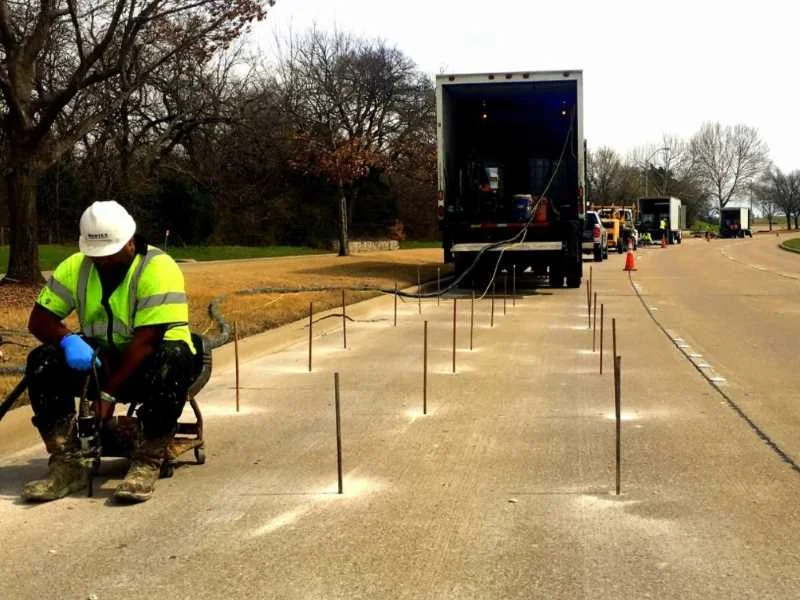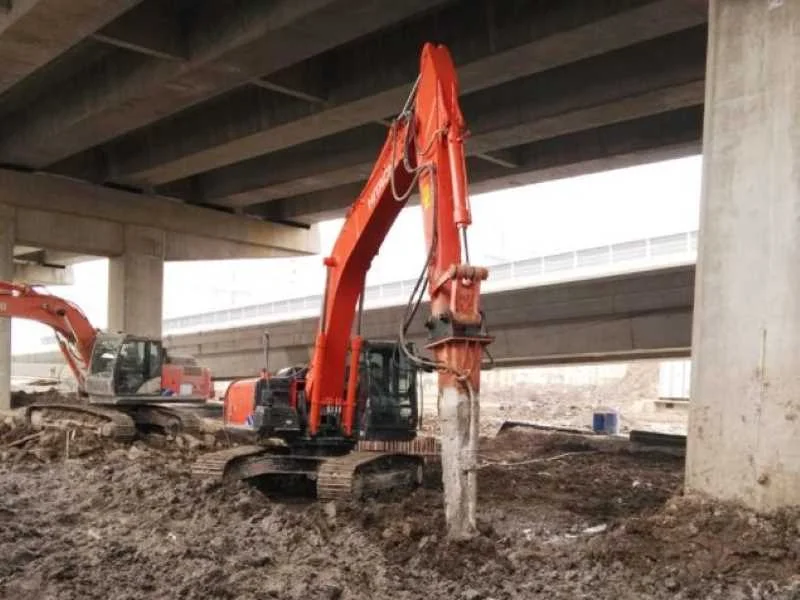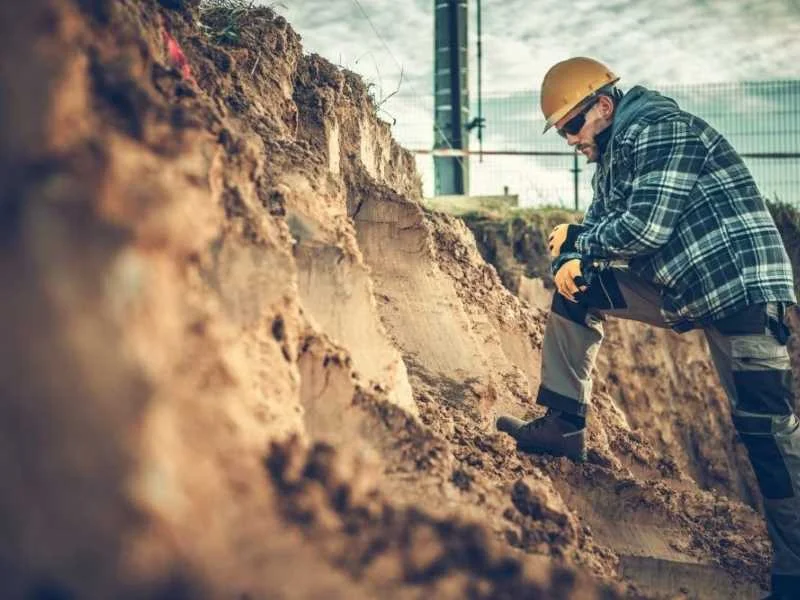Soil Stabilization Services in Gainesville, FL
Are you encountering issues with soil instability, erosion, or foundation settlement on your property in Gainesville, FL, or its neighboring areas? Don’t let these challenges compromise the integrity and safety of your structures. At Gainesville Foundation Repair Experts, we specialize in professional soil stabilization services tailored to address a wide range of soil-related concerns.
- Financing Option
- Lifetime Warranty
- Free Estimates
- Upfront Pricing
See Why Our Customers From Gainesville Loves Us!

About Gainesville Foundation Repair Experts
Gainesville Foundation Repair Experts takes pride in being the trusted authority for foundation repair solutions in Gainesville, FL, and its neighboring areas. With over three decades of unwavering commitment, we have solidified our position as pioneers in delivering top-tier services for both residential and commercial properties. As a locally owned and operated establishment, we possess an intimate understanding of the unique challenges prevalent in our region, empowering us to provide customized solutions tailored to the specific needs of our clientele. Our team of seasoned professionals upholds the highest standards of craftsmanship, reliability, and customer service, ensuring that each project is executed with meticulous attention to detail and unwavering dedication. When you choose Gainesville Foundation Repair Experts, you can trust that your property is in the hands of experts, with your satisfaction as our utmost priority.
Services We Offer:
What Is Soil Stabilization?
Soil stabilization is a process aimed at enhancing the engineering properties of soil to improve its load-bearing capacity, reduce settlement, and mitigate erosion. This technique involves the application of various materials, additives, or mechanical methods to strengthen and stabilize the soil, providing a solid foundation for structures and infrastructure. Soil stabilization is crucial for preventing foundation issues and ensuring the longevity and stability of buildings, roads, and other structures built on unstable or problematic soil conditions.

Reasons Your Property Needs Soil Stabilization
Soil stabilization offers multifaceted benefits for property owners facing soil-related challenges:
Prevents Foundation Settlement
Unstable soil conditions can lead to significant foundation settlement, resulting in structural damage and safety risks. Through soil stabilization techniques such as deep soil mixing or grouting, the soil’s load-bearing capacity is effectively enhanced, mitigating settlement and ensuring the stability and integrity of buildings and infrastructure. By addressing the root cause of settlement, property owners can avoid costly repairs and maintain the structural soundness of their properties for years to come.
Mitigates Soil Erosion
Erosion poses a significant threat to soil stability and structural integrity, compromising the foundation of buildings and infrastructure. Soil stabilization methods, including erosion control blankets, soil binders, or vegetation reinforcement, play a crucial role in preventing soil erosion and safeguarding against structural undermining. By creating a protective layer that prevents soil loss and promotes stable ground cover, property owners can minimize safety hazards and preserve the long-term stability of their properties, even in areas prone to erosion.
Enhances Structural Stability
Stabilizing the soil beneath structures is essential for enhancing their stability and longevity, particularly in areas with challenging soil conditions. By providing a solid foundation resistant to movement and deformation, soil stabilization ensures that buildings, roads, and infrastructure can withstand settlement, erosion, and environmental factors. With proper soil stabilization measures in place, property owners can mitigate the risk of structural damage, prolong the lifespan of their assets, and maintain the safety and reliability of their properties over time.
Improves Soil Bearing Capacity
Strengthening the soil through stabilization techniques is crucial for improving its bearing capacity and supporting heavier loads without settling or deforming. In construction projects where soil conditions may be inadequate, soil stabilization plays a vital role in ensuring structural integrity and safety. By increasing the soil’s bearing capacity, property owners can minimize the risk of foundation failure, structural damage, and costly repairs, ultimately ensuring the long-term stability and reliability of their properties.

Preventative Measures for Soil Stabilization
Implementing proactive measures is essential for minimizing the need for soil stabilization and ensuring the long-term stability of your property:
- Thorough Site Preparation: Adequate site preparation is crucial for establishing a solid foundation and mitigating soil-related risks. This includes comprehensive grading to ensure proper soil contouring, compaction to increase soil density and strength, and installation of effective drainage systems to manage water runoff and prevent soil saturation. By meticulously preparing the site before construction begins, property owners can minimize the likelihood of soil instability and erosion, laying the groundwork for a stable and durable structure.
- Effective Vegetation Management: Implementing effective vegetation management strategies is key to stabilizing soil and preventing erosion. This involves not only planting native vegetation but also selecting species with robust root systems capable of anchoring soil in place. Additionally, installing erosion control blankets or establishing vegetative buffers along vulnerable areas can further reinforce soil stability and reduce the risk of erosion. By fostering healthy vegetation cover, property owners can protect against soil erosion and maintain soil integrity, minimizing the need for costly stabilization efforts in the future.
- Strategic Drainage Improvement: Proper drainage design and maintenance play a critical role in managing water runoff and preventing soil saturation, both of which can contribute to soil instability and erosion. Property owners should invest in well-designed drainage systems, such as French drains or retention ponds, to effectively redirect water away from structures and vulnerable areas. Regular inspection and maintenance of these systems are essential to ensure optimal performance and prevent potential drainage issues from compromising soil stability. By proactively managing water flow, property owners can mitigate the risk of soil-related problems and preserve the integrity of their structures.
- Integration of Structural Design Considerations: Architects and engineers can play a proactive role in soil stabilization by integrating appropriate design considerations into their plans. This may include incorporating deep foundation systems, soil reinforcement techniques, or flexible pavement designs that are specifically tailored to the site’s soil conditions. By accounting for potential soil challenges during the design phase, professionals can minimize the risk of settlement or instability, ensuring that structures are built on a solid foundation. Collaboration between design and construction teams is essential to identify and implement the most effective soil stabilization measures, ultimately reducing the need for reactive repairs and enhancing the long-term durability of the project.
By implementing these proactive measures, property owners can effectively mitigate soil-related risks, minimize the need for soil stabilization, and ensure the stability and durability of their structures for years to come.
Our Soil Stabilization Services
At Gainesville Foundation Repair Experts, we’re dedicated to providing comprehensive soil stabilization services designed to tackle a wide array of soil challenges specific to your property:
- Thorough Site Evaluation: Our seasoned team of experts conducts exhaustive assessments to delve deep into understanding your soil’s unique characteristics and challenges. Through meticulous analysis, we identify any stability issues and potential risks lurking beneath the surface, ensuring a thorough understanding before proceeding with any stabilization efforts. By leaving no stone unturned, we lay the groundwork for a tailored approach that addresses your property’s specific needs, setting the stage for effective and lasting solutions.
- Comprehensive Soil Testing and Analysis: Armed with state-of-the-art equipment and expertise, we go beyond surface-level assessments to conduct in-depth soil testing and analysis. Our rigorous testing process allows us to delve into crucial soil properties such as composition, density, and moisture content, providing invaluable insights into the soil’s behavior and characteristics. With this detailed data at our disposal, we’re equipped to devise a targeted stabilization approach that leverages the most suitable methods and materials for optimal results.
- Tailored Stabilization Treatment: Building upon the insights gained from our site evaluation and soil analysis, we craft customized stabilization treatments tailored to address your property’s unique soil challenges. Whether it’s combating settlement, erosion, or other soil-related issues, our tailored approach ensures that we deploy the most effective methods and materials to fortify your soil and provide a solid foundation for your structures. By taking a personalized approach, we optimize outcomes and deliver solutions that stand the test of time.
Integrated Erosion Control Measures: Recognizing the interconnected nature of soil stabilization and erosion control, we seamlessly integrate erosion control measures into our services to safeguard against erosion and further instability. From implementing erosion control blankets to establishing vegetative cover, we take proactive steps to preserve soil integrity and promote project sustainability. By addressing erosion concerns in tandem with soil stabilization, we mitigate risks and ensure the long-term stability and viability of your property.
Alternative Methods for Soil Stabilization
While soil stabilization stands as a proven and effective method, there exist several alternative approaches tailored to address specific soil-related challenges:
- Deep Soil Mixing: Deep soil mixing involves the mechanical blending of soil with stabilizing agents to bolster its strength and stability. This method is particularly effective for addressing soft or loose soils, offering versatility and efficiency in enhancing soil properties. By creating a solid foundation, deep soil mixing mitigates the risk of settlement and ensures the stability of structures built on challenging soil types, providing long-term reliability.
- Grouting Techniques: Grouting encompasses various techniques involving the injection of specialized grout materials into the soil to fill voids, stabilize loose soil, or enhance soil properties. Techniques such as permeation grouting, compaction grouting, or jet grouting offer tailored solutions to specific soil conditions, consolidating soil and enhancing its stability. By effectively filling voids and reinforcing the soil matrix, grouting methods contribute to long-term stability and durability, supporting the structural integrity of built environments.
- Mechanical Compaction: Mechanical compaction techniques, such as vibro-compaction or dynamic compaction, focus on densifying loose or granular soils to improve their load-bearing capacity and stability. These methods are particularly suitable for enhancing soil strength and reducing settlement in areas where conventional stabilization techniques may be impractical. By compacting the soil layers, mechanical compaction creates a stable foundation capable of withstanding heavy loads and environmental pressures, ensuring the longevity of construction projects.
Geosynthetic Solutions: Geosynthetic materials, including geotextiles, geogrids, and geomembranes, offer innovative solutions for soil stabilization and erosion control. These materials are deployed to reinforce soil, control erosion, and enhance stability, providing versatility and durability for various applications. Whether used independently or in combination with other stabilization techniques, geosynthetics contribute to the long-term stability and sustainability of construction projects, delivering reliable performance and cost-effective solutions for soil-related challenges.
Searching for Professional Soil Stabilization Near You? Contact Us Today!
When you’re in need of expert soil stabilization services, look no further than Gainesville Foundation Repair Experts. Our dedicated team is ready to assist you in addressing your soil-related challenges effectively. Reach out to us today to schedule a consultation and discover how our services can ensure stability and longevity for your property.
FAQ
Frequently Asked Questions About Soil Stabilization
The effectiveness of soil stabilization varies based on factors such as the selected method, soil characteristics, and environmental conditions. When implemented properly, soil stabilization treatments can provide robust stability and durability, offering long-lasting protection for your property against erosion, settlement, and structural issues.
Soil stabilization procedures are meticulously planned to minimize disruptions to your property. While some temporary disturbances, like excavation or equipment operation, may occur, our expert team employs strategies to mitigate these impacts and ensure minimal inconvenience. Upon completion of the treatment, we prioritize restoring your property to its original condition promptly.
The timeframe for resuming regular activities on stabilized soil depends on factors such as the chosen stabilization method and soil conditions. Typically, stabilized soil can support light to moderate loads shortly after treatment, allowing for activities like pedestrian traffic or landscaping. Our team provides tailored guidelines to ensure the safe and efficient resumption of normal activities on your property.
Absolutely. Soil stabilization serves as a proactive measure to address and mitigate future soil-related challenges, including erosion, settlement, and instability. By enhancing the soil’s strength and stability, stabilization treatments fortify your property against potential damage, extending its lifespan and minimizing the need for costly reactive repairs. Invest in soil stabilization today for long-term peace of mind and property protection.
Areas We Serve in Gainesville, Florida


